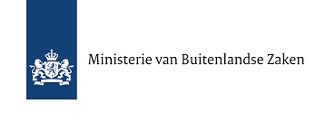W4RA’s action research program, together with Réseau MARP, with support of Nuffic in the Orange Knowledge Program help a workshop from 7 to 11 February 2022 in Réo, Sanguié province, Burkina Faso. The workshop participants were 18 women, all producers of non-timber forest products.
Non-timber forest products (NTFPs) are defined as “any good of biological origin (other than wood and wildlife except insects), derived from forests and trees, except those made up of spontaneous, domesticated plants, and those intended for reforestation. They include leaves, flowers, fruits, bark, non-lignified stems, sap, latex, essential oils, gum, resins, fungi, honey, insects” (Douamba et al. 2019). NTFPs are of great importance for rural development for various reasons: nutritional, environmental, economic, and because they play a role in women’s empowerment.
NTFPs and the rural economy
For many very low-income populations, forest products are one of the options to reduce their socio-economic vulnerability. The challenge is to establish a sustainable market for NTFPs, whose customers are in Burkinabè society. The nutritional value of NTFPs must be recognised, as well as all the other benefits. Currently people prefer imported products to local ones. Raising awareness among the local population is relevant.
In most economic and rural development support projects, export is seen as a major objective. It is true that shea butter is increasingly seen as a valuable cosmetic product on international markets. However, the dependence on large international companies as the only customers makes this emerging business activity vulnerable. There is still a need to sell for the local market, to develop this market and to market locally by targeting local customers. This will be more sustainable in the long term and make the market less volatile and less subject to fluctuations caused by external actors.
NTFPs as healthy local food
The importance of edible NTFPs in enhancing food and nutrition security in West African countries is widely recognised [Douamba 2019]. According to Sawadogo (2010) NTFPs are consumed in 43% of households in Burkina Faso. NTFPs are recognised as a valuable source of supplementary food for the rural population, particularly during the lean season. Edible NTFPs are rich in provitamin A and mineral elements such as iron, zinc, magnesium, which would otherwise be lacking in the diet of pregnant women and young children in rural areas.
NFPs, regreening and the environment
The growing interest in NTFPs is also giving a new impetus to tree protection. Several studies by Reij et al, Sendzimir et al [1,2] have already highlighted the urgency of regreening rural areas in Sahelian countries. Trees and agroforestry systems bring multiple benefits to rural populations. Trees on cultivated fields have a considerable impact on agricultural production, improving soil fertility and percolation capacity, and producing fodder for livestock. In general, trees increase farmers’ yields, enabling them to cope with periods of drought. Tree protection and management provides an affordable solution for farmers to intensify and diversify their rural production systems [4]. The production, processing and marketing of NTFPs represents a sustainable economic activity, which does not compromise the environment, but rather promotes the protection and sustainable use of trees on agro-ecological land.
Women’s empowerment through NTFPs
Women benefit greatly from NTFPs. Through the production, processing and marketing of NTFPs. Women are self-organising in groups, which gives them more autonomy. Together they are better able to communicate and link with other women’s groups, and exchange knowledge in field visits, fairs, sales events etc. Working in groups and sharing knowledge gives them new opportunities for division of labour, marketing, community awareness, etc. Meanwhile, women farmers are doing a great job of “greening” their fields with the protection and management of woody species and spontaneous regeneration, without the need for expensive inputs. NTFPs are increasingly giving women some income to better support their families. In the meantime, women’s NTFP groups are becoming increasingly important in their advocacy work for the protection of trees and biodiversity.
The challenges
Women NTFP producers are not yet recognised by many policy makers, and NTFPs are not yet known for their multiple benefits and great potential for the environment, biodiversity, local economy, and food and nutritional value. Currently, awareness of the nutritional and commercial benefits of NTFPs among the rural and urban population in Burkina Faso is very high. In the meantime, advocacy at the national and also international level on the benefits of NTFPs for biodiversity and the rural economy is essential.
How to intensify communication
In discussions with women producers during our workshop in Reo, it was perceived that the use of ICTs has also started in rural areas. A quarter of the women here have a smartphone and use Whatsapp to communicate with their customers. The use is still a bit limited, but it will spread. The digital, telecom network is expanding more and more in the country and also in the rural areas. Despite the relatively high price for a 4G internet connection, especially for people in rural areas, the benefits of communication for marketing are considerable.
The site chosen by Réseau MARP for this workshop was the UGF/CDN: Union des Groupement Féminins Ce Dwayne Nyee (L’union fait la force). This is a cooperative of women who produce shea butter. The UGF/CDN is certified organic and produced for the outside world. They have only one or two major clients in the cosmetics industry in France and the Netherlands. The French company Occitane is their biggest customer. This union is unique in Burkina. It produces 150-200 tonnes of shea butter per year. 10% is for local consumption, 90% for export. The union provides work for 6914 women.
Most of the women’s groups in our workshop produce small quantities for local consumption. The women in our workshop are presidents of small groups. They are confronted with the problem of (mis)sales. The challenges are in processing, marketing, organization and market access.
In our workshop the aim of this first meeting is to analyze the context and together try to find solutions for the communication and marketing of NTFPs. Community/local radio, local cyberspace and small digital training enterprises are ideas to support local awareness.
For communication and awareness raising at national and international level, one could look for other means such as a website, a Knowledge Graph connecting knowledge on non-timber forest products.
This project is supported by Nuffic in the Orange Knowledge Program, of the Dutch Ministry of Education.





